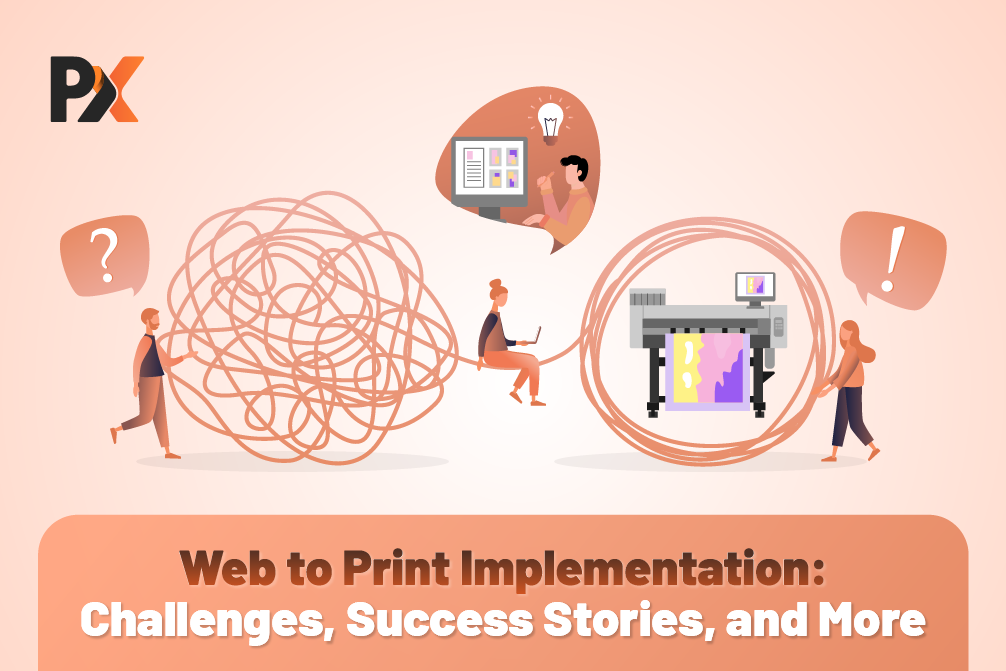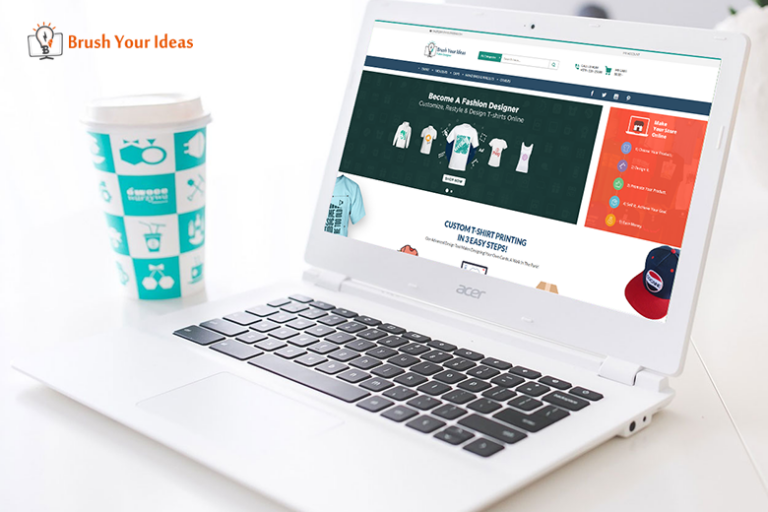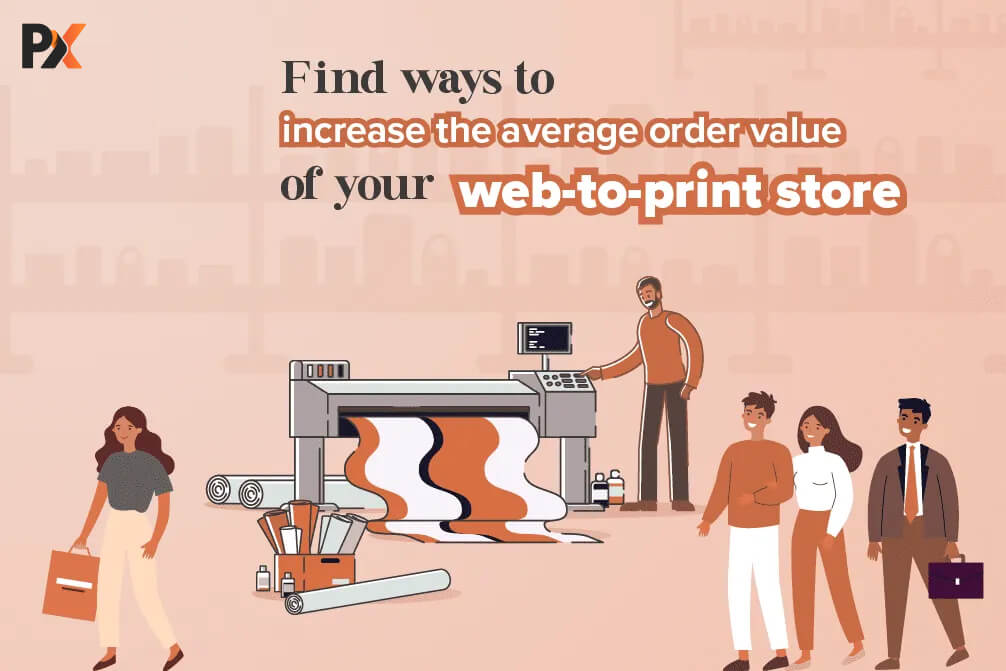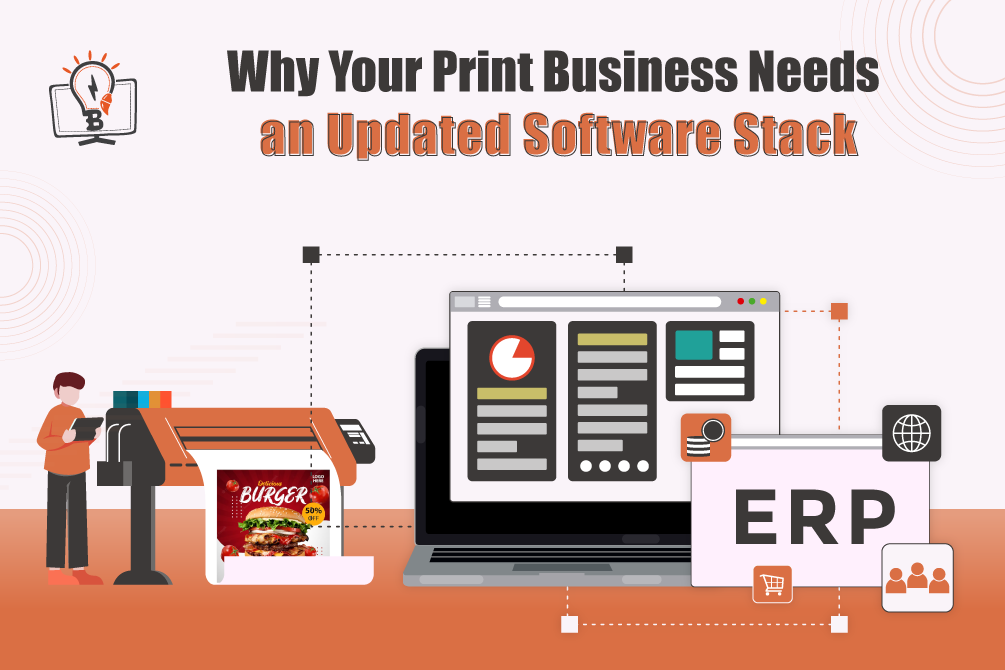Summary
Hey there! Have you ever wondered what happens when the age-old printing world gets a digital makeover?
Well, that’s exactly what’s happening with web-to-print technology, and let me tell you, it’s pretty exciting stuff. Imagine being able to customize your prints, from t-shirts to business cards, with just a few clicks online. Sounds convenient, right?
But it’s not all smooth sailing; this tech revolution brings its own set of hurdles. Yet, some businesses are thriving and turning obstacles into opportunities.
So, let us find out how!
Difficulties in Web-to-Print Integration
Cost Inflation
The print industry is highly sensitive to fluctuations in the cost of raw materials, including paper and ink.
For instance, the price of paper has steadily increased due to environmental regulations and demand-supply imbalances.
Similarly, ink prices have surged, partly due to the rising costs of petroleum and other raw materials used in their manufacture.
These cost hikes directly impact the bottom line, forcing businesses to find ways to absorb or pass these costs onto consumers without compromising market competitiveness.
Labor Shortage
The skilled labor market in the print industry is tightening. This shortage is not just about numbers but also about the skill level.
The complexity of modern printing technology requires a workforce that is both technically proficient and adaptable.
Businesses are finding themselves in a position where they must invest heavily in training and retaining talent, often competing with other industries for the same pool of candidates.
Thinning Margins
As operational costs rise without a corresponding increase in product pricing, profit margins are squeezed tighter.
Due to competitive markets, businesses are bound to keep competitive pricing. When operational costs keep increasing, their profit margins become even less.
Getting too Techie
While embracing technology is essential, there’s a risk of focusing too much on the technical details at the expense of customer experience.
Some businesses fall into the trap of over-complicating the customer interface, loaded with jargon and options that can overwhelm users looking for a straightforward solution.
This can turn off non-technical customers, reducing the accessibility of web-to-print services. The challenge lies in designing user interfaces that are both powerful and accessible, ensuring customers can easily navigate customization options without getting lost in technical complexities.
Not Engaging Your Customers
One of the most significant missed opportunities in web-to-print is failing to actively engage with customers about the possibilities and advantages of customized printing.
This engagement involves educating customers on the value of personalization, the range of options available, and the ease of use of web-to-print platforms.
Without this active engagement, customers may remain unaware of the benefits, limiting the adoption and success of web-to-print solutions.
Industries Benefiting from Web to Print
1. Decorated Apparel
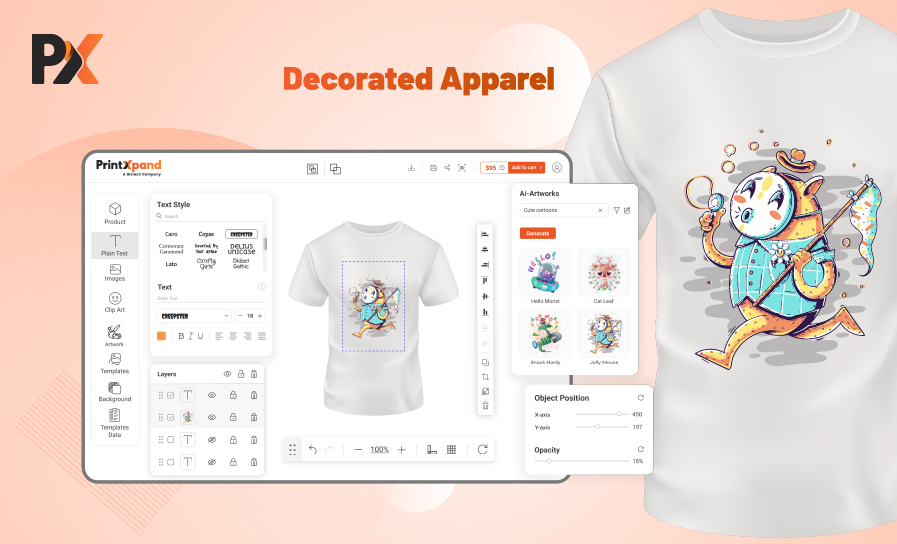
The decorated apparel industry, encompassing everything from custom t-shirts to personalized corporate wear, has seen a comeback thanks to web-to-print solutions.
The global custom apparel market is expected to expand at a CAGR of 6.38%, reaching USD 70877.54 million by 2031.
Businesses can offer customers an interactive apparel design platform, integrating everything from text to complex graphics. This enhances the customer experience and reduces inventory burdens, as items are printed on demand.
2. Wide-format Printing
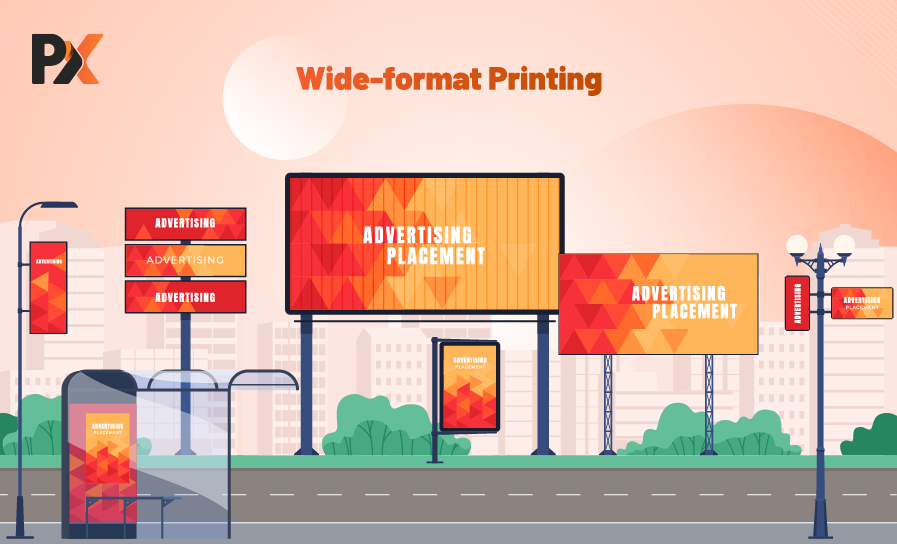
A study shows that the global wide format printers market is projected to reach USD 15.02 billion by 2030, growing at a CAGR of 6.39% from 2023 to 2030.
Wide-format printing, which includes banners, posters, and signage, benefits enormously from web-to-print technologies.
The ability to quickly design, proof, and order large-scale prints online streamlines the production process, reducing turnaround times and allowing for greater flexibility in design iterations.
3. Commercial Printing
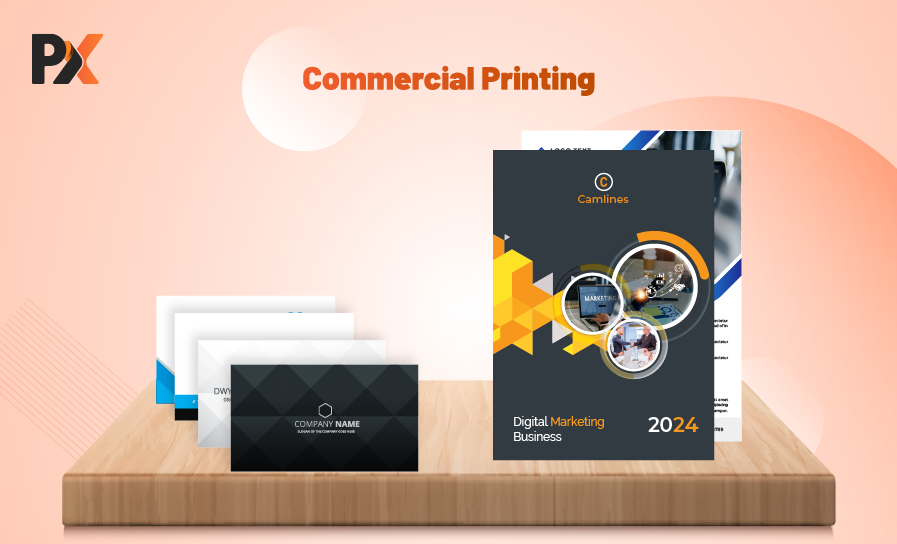
Commercial printers have traditionally managed a wide range of products, from business cards to brochures and annual reports.
The global commercial printing market size is projected to reach USD 568.84 billion by 2031, growing at a CAGR of 2.10%.
Web2print software allows these businesses to offer their clients customizable templates and direct ordering capabilities, significantly improving efficiency. This has a direct impact on reducing waste and production costs while also speeding up delivery times.
4. Promotional and Personalized Gifting
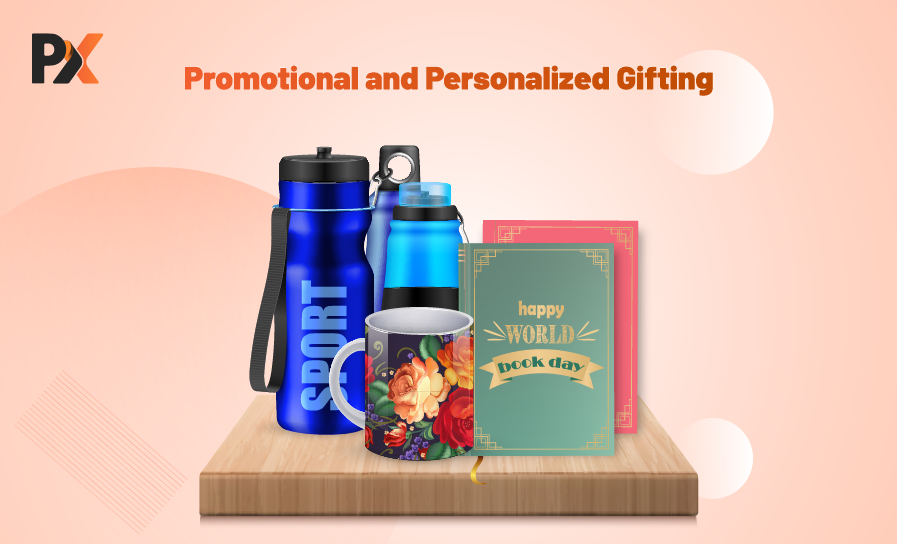
The promotional and personalized gifting sector has experienced a boom after the increase in customization opportunities. The global market for personalized gifts is projected to reach USD 47.6 billion by 2030, growing at a CAGR of 5.8%.
Custom mugs, pens, and notebooks can now be easily designed and ordered in bulk or as one-offs. This sector benefits from the ability to cater to the increasing consumer demand for personalized products, which has been identified as a significant trend influencing consumer behavior.
5. Custom Box and Packaging
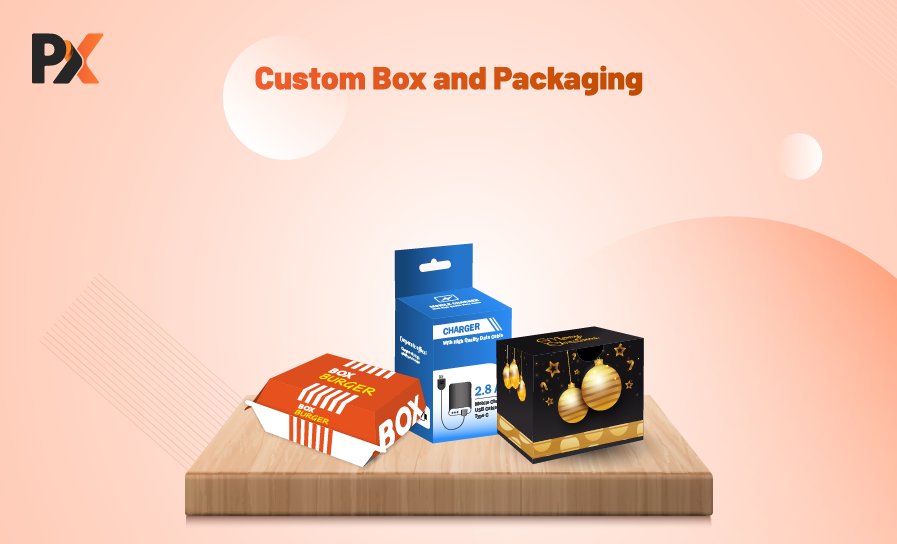
Web-to-print technology enables businesses to design and order custom packaging with ease, allowing for greater brand differentiation and customer experience.
The global custom packaging boxes market is projected to reach a valuation of USD 9 billion in 2032 at a CAGR of 4.7%.
6. Photo Books and Booklets
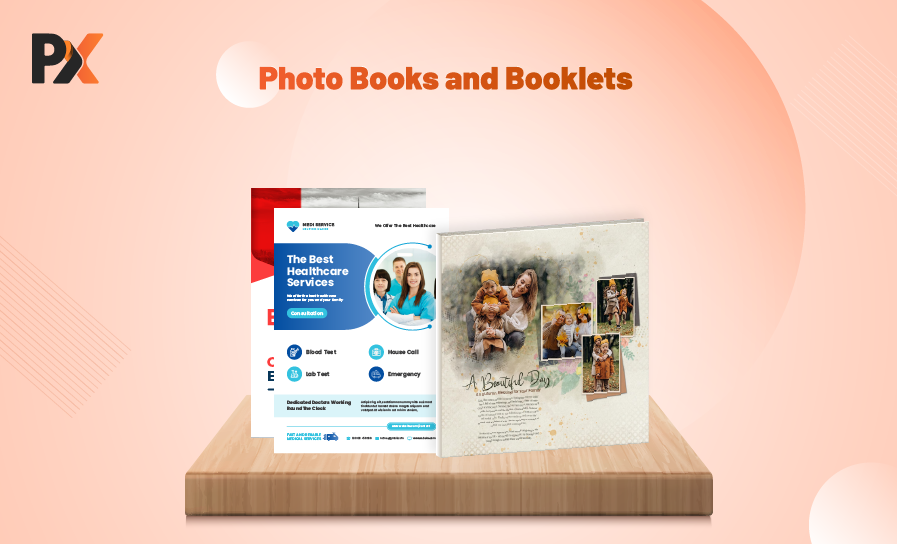
The market for photo books and personalized booklets has expanded, with consumers looking for high-quality, easy-to-create memory books.
Web2print software have made it simpler for customers to upload photos, choose layouts, and design their own books, turning digital memories into tangible keepsakes.
The size of photobook market is expected to reach USD 5.01 billion in 2030, growing at a CAGR of 4.59% from 2023 to 2030.
Success Stories of Printing Businesses Using Web-to-Print
Intersilvi’s Customization Triumph
Intersilvi, a Swedish company specializing in rosettes, medals, trophies, and stable plaques, faced the challenge of offering personalized products in a market demanding high customization.
With our web-to-print technology, they allowed their customers to customize products. Our tool streamlined the design process and enabled Intersilvi to manage multiple stores and pricing efficiently. They show a significant improvement in customer satisfaction and operational efficiency after this integration.
Key achievements include:
- Development of a customized tool page for easy product personalization.
- Real-time pricing adjustments for customized orders.
- Enhanced customer interaction through multi-user accounts.
- Streamlined integration between Magento and Navision for improved order management.
eCreamery’s Flavorful Innovation
eCreamery, an ice cream company known for its unique flavors, ventured into web-to-print to enhance customer engagement by allowing them to personalize ice cream pint designs.
Utilizing web-to-print technologies like Magento and Shopify, eCreamery introduced a system where customers could select flavors and add personalized messages or images to the ice cream pints.
Key outcomes include:
- Enhanced flavor customization options, significantly increasing Average Order Value (AOV).
- A user-friendly interface for designing ice cream pints, leading to a 19% rise in repeat customer rates.
- Efficient inventory management and streamlined order processing through Shopify integration.
Logo Makers’ Design Revolution
Logo Makers, a South African company providing logo design solutions, transformed its service delivery by adopting web-to-print technology.
Facing the challenge of streamlining the logo design process for their extensive collection of over 6000 SVG logos, we helped them implement a system that allowed customers to customize and download high-quality logo files easily.
This approach simplified the design process and enhanced customer satisfaction by providing flexibility and a wide range of options.
Achievements include:
- Automated conversion of SVG logos into customizable design templates.
- Implementation of a feature-rich platform for easy logo customization and download.
- Significant increase in sales, with a 20% rise in quarterly sales attributed to the new system.
Why Need Web to Print for Business?
Web-to-print technology is essential for businesses seeking to stay competitive in the digital age. It offers:
Customization: Enables customers to create personalized products, enhancing customer satisfaction and loyalty.
Efficiency: Streamlines the ordering and production process, reducing costs and turnaround times.
Scalability: Allows businesses to easily expand their product offerings without significant upfront investments.
Accessibility: Makes it possible for customers to place orders 24/7 from anywhere, improving customer service.
Conclusion
Despite the challenges associated with web-to-print integration, there are substantial benefits across various industries. By addressing the difficulties and engaging customers effectively, businesses can innovate their product offerings, enhance operational efficiency, and ultimately drive growth. As the print industry continues to evolve, web-to-print remains a critical tool for businesses aiming to meet the dynamic needs of their customers in a digital world.
All product and company names are trademarks™, registered® or copyright© trademarks of their respective holders. Use of them does not imply any affiliation with or endorsement by them.
